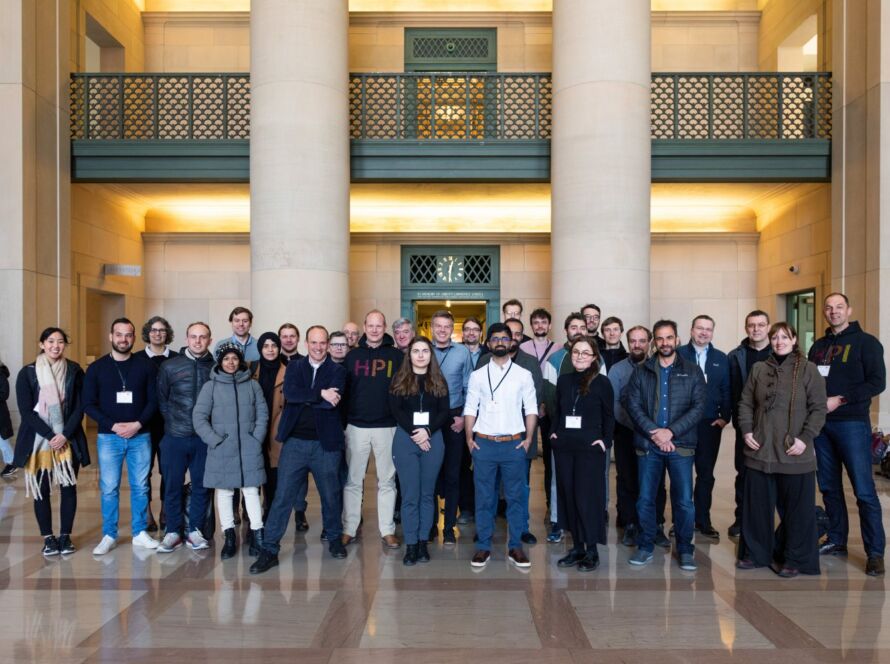Meta, the tech big behind Fb, Instagram, and WhatsApp, has launched AI Studio, a platform that permits customers to create, share, and uncover customized AI chatbots. This transfer marks a shift in Meta’s AI chatbot technique, shifting away from their earlier celebrity-focused chatbots to a extra democratized strategy.
The introduction of AI Studio represents the accessibility of AI expertise. By placing the facility of AI creation into the arms of on a regular basis customers and content material creators, Meta isn’t solely increasing its AI choices but additionally trying to alter how individuals work together with and understand AI. This transition from pre-designed movie star chatbots to user-generated AI characters opens up new prospects for personalization, creativity, and engagement throughout Meta’s suite of social media platforms.
AI Studio Empowers Customers to Create Customized AI Characters
AI Studio, constructed on Meta’s superior Llama 3.1 language mannequin, gives a user-friendly interface that permits anybody, no matter technical experience, to create their very own AI chatbots. The platform supplies a variety of options designed to make AI creation each accessible and versatile, together with customizable persona traits, pre-designed immediate templates, and the power to outline particular data areas for the AI.
The potential purposes for these customized AI characters are huge and restricted solely by customers’ creativeness. Examples embody culinary AIs providing customized cooking ideas, journey companion AIs offering native insights, and health motivator AIs providing tailor-made exercise plans.
AI Studio is available via a number of entry factors:
- The devoted web site
- Throughout the Instagram app by beginning a brand new message and tapping “AI chats”
- Skilled dashboard for creators within the Instagram app
This multi-platform availability ensures that customers can interact with AI Studio in whichever atmosphere they discover most snug, whether or not on desktop or cellular units.
Picture: Meta
Creator-Centered AI: Extending Attain and Engagement
Meta’s AI Studio introduces a brand new dimension to creator-audience interactions on social media platforms. The instrument permits content material creators to develop AI variations of themselves, able to dealing with routine interactions with followers. This improvement raises questions concerning the nature of authenticity and parasocial relationships within the digital age.
In line with Meta, creators can use AI Studio to:
- Automate responses to widespread direct messages
- Reply to story interactions
- Share predetermined details about their work or model
The corporate claims this may assist creators handle their on-line presence extra effectively, significantly throughout completely different time zones. Nonetheless, critics argue that this might result in a much less real connection between creators and their viewers.
Early adopters of this expertise embody social media personalities Chris Ashley, Violet Benson, Don Allen, and Kane Kallaway. Whereas these creators are experimenting with AI-driven interactions, it is too early to find out the long-term influence on their follower engagement or general model notion.
The introduction of AI-powered creator interactions additionally raises moral concerns. Followers could not at all times remember they’re interacting with an AI quite than the creator themselves, regardless of Meta’s assurance that AI responses can be clearly labeled. This blurring of strains between human and AI interactions may doubtlessly influence the perceived worth of creator content material and fan experiences.

Picture: Meta
The Shift from Movie star Chatbots
Meta’s launch of AI Studio marks a big pivot from its earlier technique of celebrity-endorsed AI chatbots. In September 2023, the corporate unveiled a collection of AI characters based mostly on celebrities like Charli D’Amelio, Dwyane Wade, and Paris Hilton. These chatbots have been designed to embody alternate personas of the celebrities, resembling a “dance fanatic” or a “detective companion for fixing whodunits.”
Nonetheless, this celebrity-focused initiative seems to have been short-lived. Studies recommend that Meta invested hundreds of thousands in licensing movie star likenesses for these AI chatbots. The speedy shift to user-generated AI via AI Studio raises questions concerning the success and sustainability of the movie star AI mannequin.
Trade analysts speculate that the transition to user-generated AI could also be pushed by a number of elements:
- Value-effectiveness: Creating and sustaining movie star partnerships seemingly incurred vital bills.
- Scalability: Consumer-generated content material permits for a extra various and quickly increasing vary of AI characters.
- Consumer engagement: Enabling customers to create their very own AI doubtlessly fosters deeper platform engagement.
This strategic shift has implications for Meta’s AI strategy. It suggests a transfer in direction of democratizing AI creation, doubtlessly permitting the corporate to assemble extra various knowledge on person preferences and interactions. Nonetheless, it additionally presents new challenges in content material moderation and guaranteeing accountable AI use.
Integration with Meta’s Ecosystem
AI Studio isn’t an remoted product however a part of Meta’s broader AI technique throughout its household of apps. The corporate has been integrating AI assistants into Fb, Instagram, Messenger, and WhatsApp, indicating a company-wide push in direction of AI-enhanced person experiences.
The cross-platform availability of AI Studio-created chatbots is a key characteristic of this integration. Customers can work together with these AI characters throughout Meta’s platforms, together with:
- Instagram direct messages
- Fb Messenger
- Net-based interfaces
This integration technique seems aimed toward making a cohesive AI expertise throughout Meta’s ecosystem. It may doubtlessly enhance person retention and cross-platform engagement, a long-standing aim for the corporate.
Trying Forward: The Way forward for AI at Meta
The introduction of AI Studio and the shift in direction of user-generated AI chatbots sign Meta’s dedication to positioning itself on the forefront of shopper AI expertise. This transfer may have far-reaching impacts on person engagement and creativity inside Meta’s platforms.
Meta’s success in navigating the varied challenges will seemingly play a vital position in shaping the way forward for AI integration in social media platforms. As AI turns into extra prevalent in every day digital interactions, the corporate’s strategy may set precedents for the broader tech trade.
The long-term implications of this shift in direction of user-generated AI stay to be seen. Trade observers can be carefully monitoring how customers undertake these instruments, how they influence social media dynamics, and the way Meta addresses the inevitable moral and sensible challenges that come up.




